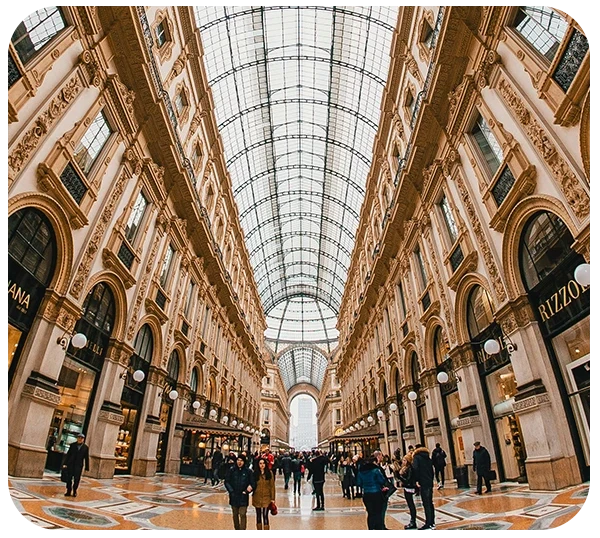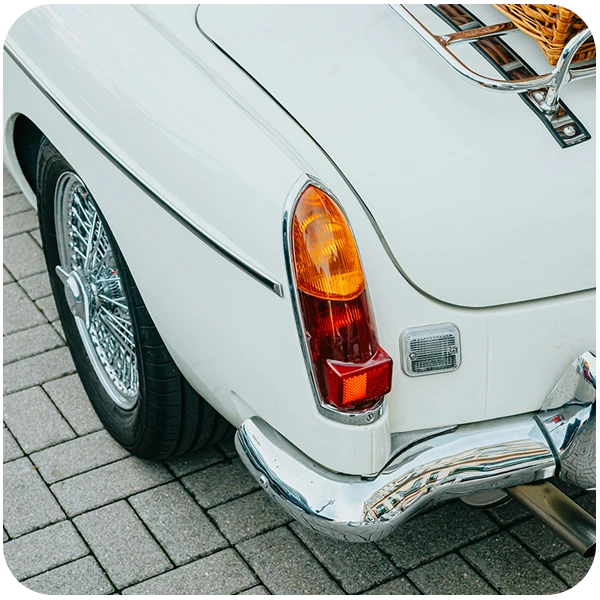Beyond Exclusivity: Luxury at Scale
A quiet revolution is unfolding in the world of luxury automotive and retail. The landscape, once defined by exclusivity, is being reshaped by personalization and digital innovation. Today’s discerning clientele seeks more than premium products; they are looking for accessible, inclusive experiences that resonate with their interests and lifestyles.
The future of luxury lies in curating bespoke, data-driven experiences that remain true to brand heritage. As brands navigate this terrain, they’re not just redefining luxury — they’re optimizing the very essence of premium experiences for a digital age.

Scaling Personalization: The Luxury Imperative
Central to brand strategy is the seamless integration of digital and physical touchpoints, often referred to as “clicks to bricks.” By creating interconnected experiences, luxury brands ensure that a client’s online, mobile, or in-store journey remains consistent, relevant and unmistakably premium.
Standardization plays a crucial role in this process. By synchronizing data collection and analysis methods, brands can tailor experiences consistently across their diverse global customer set. This uniformity also uncovers valuable insights that inform product development and regionally-specific marketing strategies.
By anticipating needs and delivering thoughtful, customized touches, brands elevate the entire shopping experience. This data-driven approach enables luxury retailers to reshape interactions at scale, enhancing client engagement while preserving the essence of exclusivity that defines luxury.
Emerging Trends: Shaping Luxury Experiences
Luxury brands are increasingly exploring bespoke offerings. This shift encourages clients to co-create products that reflect their unique tastes and preferences, customizing functionality and performance to their daily use case(s).
In the automotive sector, connected vehicles are on the path to becoming standard. Modern luxury cars are becoming extensions of personal identity thanks to AI-driven systems that learn and adapt to the driver’s habits.
Sustainability and circular economy principles are also gaining prominence in luxury retail. Brands are implementing ingenious ways to extend product lifecycles, offer refurbishment services, and create products designed for longevity. For instance, some luxury fashion brands are exploring innovative materials and modular designs that allow for easier repairs and updates, enhancing product lifespan without compromising style. This shift appeals to environmentally conscious consumers while placing value on responsible consumption and timeless craftsmanship.
Virtual and AI-driven shopping experiences are beginning to transform how luxury brands engage with clients. From virtual showrooms to AI-powered personal shoppers, these technologies offer highly personalized interactions that cater to the client’s preferences and schedule, bridging the gap between digital convenience and customized service.
Lastly, some luxury automotive brands are experimenting with direct-to-consumer models. Brands are establishing their own retail presence, moving away from traditional dealership models to allow greater control over the brand experience, offer more tailored services, and maintain a direct relationship with their clientele throughout the ownership journey.
Navigating Challenges: A Case Study in Luxury Modernization
While personalization offers immense opportunities, luxury brands face significant challenges in its implementation:
This cutting-edge destination features AI-powered assistants that curate recommendations based on individual preferences and purchase history. Interactive displays allow customers to customize vehicles in real-time, providing a sensory, immersive and memorable shopping experience.
The store’s crown jewel is its “digital twin” technology, enabling customers to engage with virtual representations of key brand figures, such as designers or executives. The experience bridges the gap between exclusive access and scalable customer service, sparking authentic and compelling storytelling.
Early results from the multi-sensory experience, including music and scent, suggest that more impactful brand storytelling increases customer engagement. Connected elements and a brand community help customers stay connected after the visit. Moreover, the conversion rate for high-end, customized vehicles has seen a notable uptick.
This approach demonstrates the potential of data-driven personalization in luxury retail. By successfully addressing current challenges, this brand has enhanced its customer experience and laid the groundwork for its future product roadmap.

A Glimpse into Luxury’s Future
As luxury brands continue to innovate, we’re likely to witness a transformation in manufacturing processes across the sector. Ultra-personalized, one-off creations may spark a revolution in how luxury products are conceived and produced, potentially leading to mass customization at an unprecedented scale.
Additionally, we might see luxury brands evolve into full-service lifestyle partners. This could involve offering comprehensive, technology-driven services throughout a product’s lifecycle — from bespoke creations to AI-powered maintenance recommendations and, eventually, curated second-life programs. Such an approach would extend beyond current sustainability efforts, transforming the concept of luxury ownership into a dynamic, long-term relationship between brand and client.
While challenges remain, the future of luxury retail promises an exciting blend of cutting-edge technology and timeless craftsmanship. Luxury brands can forge even deeper connections with their clientele by staying attuned to emerging trends and continuously innovating, ensuring their relevance and appeal in an ever-evolving marketplace.
CONNECT WITH US
Elevate your Customer Experience through the power of Mood.
